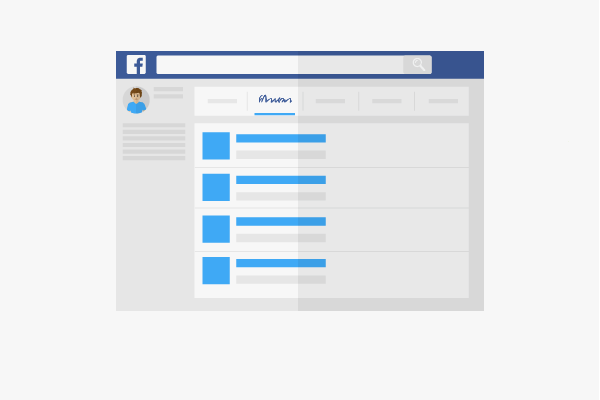Facebook Graph Search
Facebook Graph Search refers to the central search function of the social network Facebook. Unlike global Internet search engines such as Google, this Facebook search engine searches specifically for content that is published within that specific platform. This includes posts or comments from other users. The Graph Search is therefore also called “Social Search.”
Development and background
The Graph Search established by Facebook was designed and implemented by two former Google developers. It was made available for the first time in January 2013 as a beta version to selected users in the United States. It was now possible to search Facebook with the central search bar for people, sites or companies. Since August 2013, the Graph Search function can be used by all Facebook users in the US. It was enhanced again three months later. Facebook can now be searched for comments and postings as well.
The name "Graph Search" goes back to the so-called “social graph,” a feature that allows you to represent the relationships between individual users graphically on Facebook.
According to the Facebook, more than 700 terabytes of data has been indexed and made searchable for the search function so far.
The business model of most search engines consists primarily of attracting and keeping users through high-quality search results and use this affinity for ads placed within the search results. Facebook is ad-supported as well. The more data the company knows about its users, the more precisely the ads can be targeted. Using the Graph Search, Facebook is now getting even more data about its users and promotes the networking of users with one another. In this way, entire friend networks are created that can be selectively targeted with advertising.
Interesting background information is also that Google has no access to this data via API and only Facebook can evaluate the data from its network.
Functionality
The Graph Search is similar in its functioning to popular search engines and their work algorithms. In contrast to Google or Bing, for example, the data base for the search index does not get created by crawling different domains on the Internet, but consists of the data on users and their profiles on Facebook. If the date is insufficient for a search on Facebook, the search results list is complemented with search results from the Bing search engine.
With Graph Search, Facebook has now created a semantic search, because the network does not issue purely keyword-based search results, instead it immediately presents links to corresponding profiles based on the information entered by the user. Users can also enter phrases into the search field to get suitable search results. Similar to the AutoSuggest feature for Google, Facebook has integrated such a function in its social search.
These results are firstly based on content, created by Facebook users and secondly on the user relationships. Data from user profiles is used for searches. This includes results of users the searcher has not marked as friends.
The search results do not provide links to the Internet such as Google does, but shows profiles or posts from users and Facebook pages. The search includes the following aspects:
- People
- Facebook pages
- Facebook places (the geographical search radius can be limited)
- Images, on which other users were tagged
- Comments and postings
Alternatively, the web can be searched through Graph Search, with the help of Bing.
The following searches are possible:
- Seeking friends who like to play soccer and are Bayern-Munich fans
- Seeking single males in Frankfurt under 25 / Seeking single women in Hannover under 30
- Photos of my friends from the Oktoberfest
Criticism
Because of the massive analysis of user data, the Facebook Graph Search was targeted by privacy advocates shortly after its launch. Nevertheless, Facebook pointed out that the data accessible through the Graph Search is already publicly posted and accessible on Facebook and that users can adjust the privacy settings in terms of what data is intended for the public and what is not. Previously one would have had to sift through the entire network for postings to access to the data. By means of the Graph Search it is possible with just one search request.
Benefits for SEO
A direct benefit of Graph Search for search engine optimization is not expected. However, it might be interesting for companies to strengthen outreach and reputation on Facebook as a social network through postings on current events or spreading positive feedback on the company from other users. One possibility, which is already used to launch campaigns on Facebook are hashtags.

